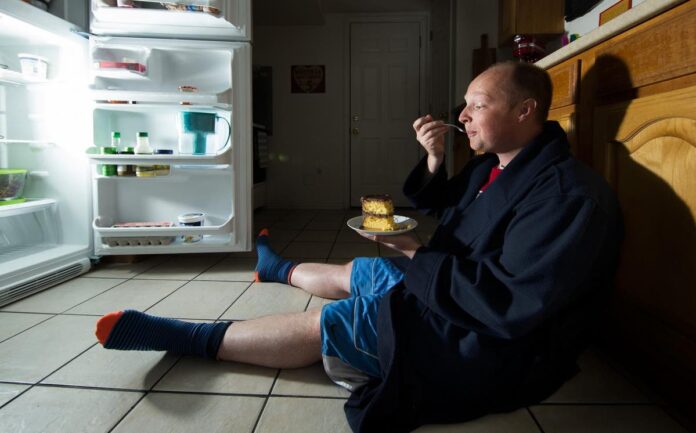Scientists have uncovered why disruption to the sleep cycle and eating late at night is linked to diabetes and weight gain, an advance that has broad implications for dieting and sleep loss.Nearly a tenth of the global population has diabetes, with the chronic health condition being the direct cause of 1.5 million deaths in 2019, according to the World Health Organization (WHO).The WHO also reported that about two billion adults across the world are overweight, of whom more than 650 million are considered to be affected by obesity.While studies have shown that overnutrition is linked to changes in fat tissue and disruption of the body’s biological clock, the exact connection between eating time, sleep, and obesity remains poorly understood, say researchers, including those from Northwestern University in the US.’Clocks are doing a lot to metabolic health at the level of fat tissue, and we don’t know how much yet,’ study co-author Chelsea Hepler said in a statement.The new study, published earlier this month in the journal Science, found that energy release following digestion may be the molecular mechanism through which the body’s biological clock – the circadian rhythm – affects weight gain.Based on the study, scientists say daytime is the ideal time when the body is most optimal to dissipate energy as heat. Researchers say the findings have broad implications from dieting to sleep loss and also in how chronically hospitalised patients requiring long-term nutritional assistance are fed.’When animals consume western-style cafeteria diets – high fat, high carb – the clock gets scrambled,’ study lead author Joseph T Bass said in a statement.’The clock is sensitive to the time people eat, especially in fat tissue, and that sensitivity is thrown off by high-fat diets. We still don’t understand why that is, but what we do know is that as animals become obese, they start to eat more when they should be asleep. This research shows why that matters,’ Dr Bass explained.In the research, scientists fed mice a high-fat diet either exclusively during their inactive (light) period, or during their active (dark) period.They found that the mice fed during light hours gained more weight compared to those fed in the dark.Researchers also controlled for other factors, including temperature by setting the temperature to 30 degrees at which mice expend the least energy.’We thought maybe there’s a component of energy balance where mice are expending more energy eating at specific times. That’s why they can eat the same amount of food at different times of the day and be healthier when they eat during active periods versus when they should be sleeping,’ Dr Hepler said.Following the experiment, scientists analysed the metabolism of fat tissue in the mice to assess if the same energy expenditure effect occurred within this organ. They found that the mice which had genetically enhanced thermogenesis – or ability to release heat through fat cells –prevented weight gain and improved health.’Mice fed an HFD consumed during the active phase of their daily cycle (nighttime for a mouse) had greater energy expenditure resulting from the metabolism of food to produce heat,’ researchers wrote in the study.Scientists also found that the molecule creatine may be behind the mechanism underlying this heat release.Researchers believe the new findings could inform chronic care, especially in cases where patients have gastric feeding tubes. The rates of diabetes and obesity in these patients, who are commonly fed at night while they sleep, have been found to be high in previous studies. Based on the new results, scientists suspect this could be because they’re releasing the least amount of energy as they sleep at night.’These results help to explain the benefits of time-restricted feeding and how circadian disruption can contribute to metabolic disease,’ researchers wrote in the study.


